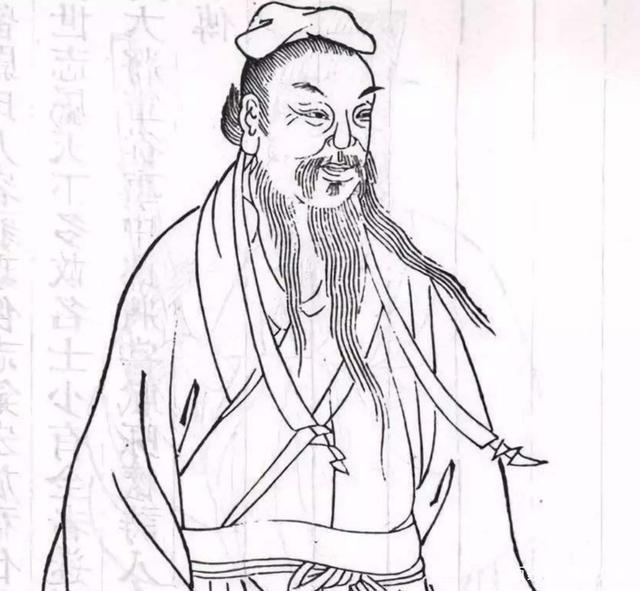The story behind the song "Drunk Crazy"
In the "Magic Secret Music", the inscription cloud: The fairy said, this is the song, and Ruan Ji did it. Ji sighed that it could not be done, and it was not in line with the time, so he forgot about the world and thought about his body, and entrusted him with alcoholism, in order to enjoy his lifelong ambition. If it is interesting, how can it really be addicted to alcohol, there is a way to keep it. The beauty lies in it, so it is not the way of ordinary people, and those who achieve it can get it.
Many people hesitated when they heard the name "Drinkmaniac" for the first time: is this a Guqin piece? It seems that this wild name has nothing to do with the simple and elegant Guqin, and this is what Ruan Ji, the author of this song, started with.
Ruan Ji (210-263 AD)
Zi Zong, a native of Chen Liuwei's family (now Kaifeng City, Henan Province), was a poet of the Wei State during the Three Kingdoms period and one of the Seven Sages of Bamboo Forest; he believed in Taoism, and he vigorously created five-character poems and metaphysics; He is the author of "Eighty-two Poems of Yonghuai" and "The Biography of Mr. Adult".

Ruan Ji is withdrawn and light-hearted, and he has two extremes in his thinking: helping the world and avoiding the world, and his life can be described as "true romance". He lost his father at the age of three and was raised by his mother. Although his family was poor, he was gifted with extraordinary talents. He was able to write articles at the age of eight, and his hobby was to play the piano and roar all day long. In the early Wei and Jin Dynasties, when Cao Shuang and Sima Yi were assisted by Cao Fang, the two were fighting openly and secretly, and the original political ambition to save the world had no choice but to give up due to the turmoil of the court, but as a famous person who opposed the dark rule, in order to Not to get involved in the political situation and avoid the persecution of the rulers, he achieved the result of non-cooperation by feigning drunkenness.
There is a story in history that Ruan Ji "refused to marry Sima Zhao after being drunk for 60 days".
At that time, the Sima family was in power, and Sima Zhao valued Ruan Ji's talent and reputation, and hearing that his daughter Ruan Bing was beautiful and virtuous, he used the pretext of "proposing marriage for his son Sima Yan" to win him over. Ruan Ji was helpless to Sima Zhao's power. He didn't want to ruin his life's reputation and wanted to protect the peace of his family, and he couldn't bluntly refuse to marry, so he simply got drunk every day to escape the problem.
Therefore, whenever Sima Zhao mentioned marriage matters, without waiting for him to finish speaking, Ruan Ji immediately raised his glass to toast, and then sullenly, drinking cup after cup, he drank on his own, and he had already drank before the banquet was over. Drunk. Sima Zhao saw that Ruan Ji was drunk, so he had to swallow the unfinished words in his stomach, but he did not stop there and began to send someone to Ruan Ji's house to propose marriage.
Ruan Ji also has a clever way to do this. Whenever he heard that Sima Zhao sent someone to propose, he would get drunk first, and when the matchmaker saw Ruan Ji was drunk, he had to go back to the house without saying a word. Sima Zhao learned that he could come to the door every day and wait for him to wake up, and immediately discuss the matter of proposing a marriage. The matchmaker was helpless, and went to the door every day to inquire. During this period, Ruan Ji occasionally encountered a drunken madman, and was beaten and scolded before being kicked out. After more than 60 days of repetition, Sima Zhao lost his patience and stopped talking about marriage.
It was in this state of drunkenness, non-rejection, and non-cooperation that Ruan Ji was able to keep himself and his family in peace. The famous song "Drinking Crazy" was also completed in this context, carrying Ruan Ji's full of anger.
It's a pity that in my life I have the ambition to help the world, and I have nowhere to show my blood and anger, so I can only play the piano without asking about the world. .
 渝公网安备 50010702504639号
渝公网安备 50010702504639号